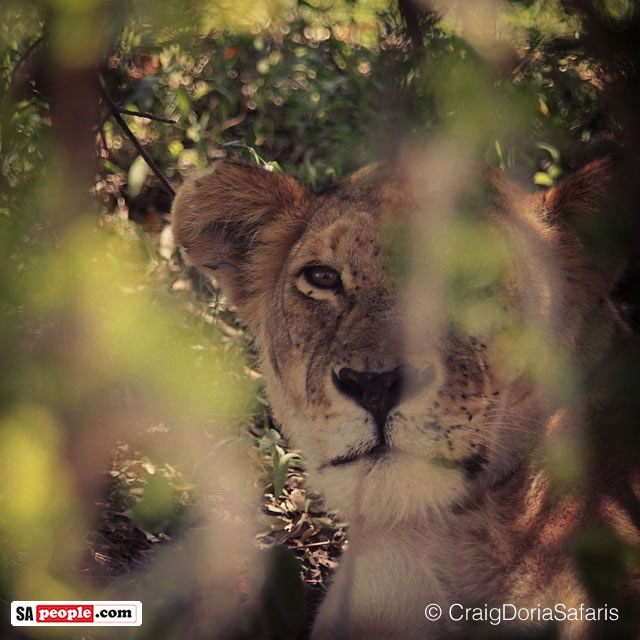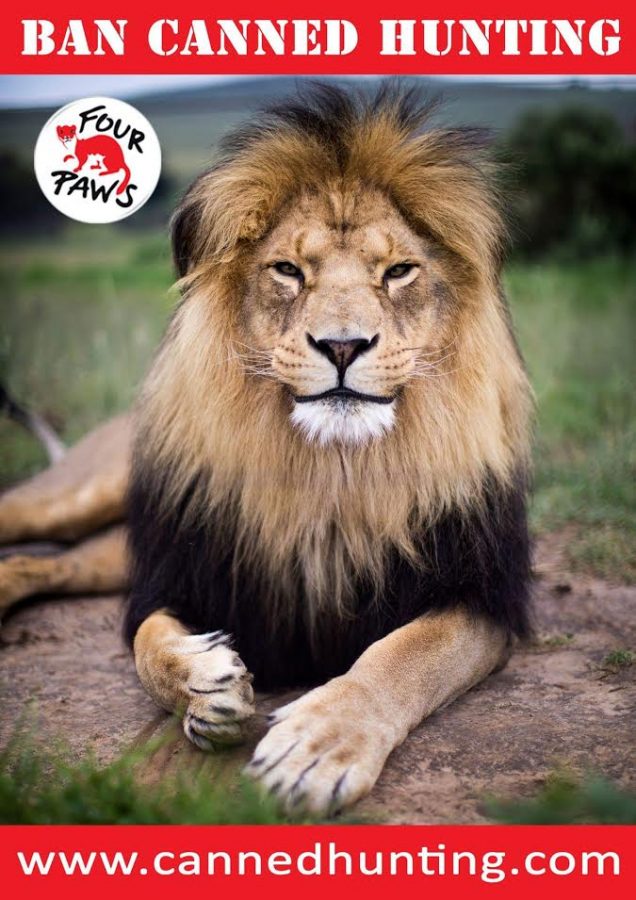
Africa’s Lion Population is Fast Disappearing…
Today marks the advent of World Lion Day – the first global campaign to not only celebrate the majestic animals, but to highlight the dire danger they are in as their numbers decline daily and they could face extinction in the wild by 2050. Only an estimated 20,000 lions remain in the wild, with some […]

Today marks the advent of World Lion Day – the first global campaign to not only celebrate the majestic animals, but to highlight the dire danger they are in as their numbers decline daily and they could face extinction in the wild by 2050. Only an estimated 20,000 lions remain in the wild, with some – including South Africa’s ‘lion whisperer’ Kevin Richardson – estimating it may already be as low as 15,000…

Africa’s lion population has reduced by approximately 43 percent over the past 21 years according to the IUCN (International Union for Conservation of Nature).
The big cat species (Panthera leo) is listed by the IUCN as Vulnerable; facing a high risk of extinction in the wild. (Although the overall classification is Vulnerable, this masks a dichotomy because in the majority of its range the lion meets the criterion for Endangered and even Critically Endangered in West Africa.. but this is mitigated by a small number of subpopulations – in Botswana, Namibia, South Africa and Zimbabwe – where an increase of 12 percent has been recorded.)
ONLY 20,000 LIONS ARE LEFT IN THE WILD
Not only are there estimated to be less than 20,000 lions left in the wild. They are also extinct in 26 African countries and have disappeared from 90 percent of their historical roaming grounds.
The IUCN says the reasons for the overall decline is the rapid development and expansion of sub-Saharan Africa.
The main causes for lion deaths are:
- indiscriminate killing (by locals) in defence of human life and livestock;
- the destruction and loss of their habitat;
- poaching;
- loss of their prey base to the bushmeat trade; plus
- an emerging threat is trade in bones and other body parts for traditional medicine, both within Africa and in Asia
As far as trophy hunting goes, the IUCN says “although trophy hunting contributes positively to Lion conservation, improvements in management practices have been recommended, as when poorly regulated, it also contributes to population declines.”
“There is an urgent and unprecedented need to uplift [the lion’s] protection status to curb the trade and related activities that are so clearly threatening their survival,” says Fiona Miles, Director at FOUR PAWS Animal Welfare Foundation, an organisation campaigning for an end to the exploitative trade in big cats and which operates sanctuaries to save those from abusive captivity.
Canned Lion Hunting
Whilst South Africa hosts the 17th meeting of the Conference of the Parties to CITES (CoP17) in Johannesburg, South Africa later this year, the country remains the proponent of captive breeding lions for commercial gain.

There are currently more lions kept in captivity for canned hunting purposes than there are in the wild.
None of the animals being kept in captivity can be used in relocation or conservation programmes as they are often tame and genetically contaminated.
A proposal has been submitted to CITES by Chad, Côte d’Ivoire, Gabon, Guinea, Mali, Mauritania, the Niger, Nigeria and Togo to have lions status uplisted from Appendix II to Appendix I, whilst Southern African countries claim no decline in numbers and want to be able to continue in the fashion a la Cecil.
“We believe that all lions should be placed on Appendix I in order to protect the species and are deserving of the same protection,” says Miles.
“Other solutions leave the door open for poachers and smugglers to continue their actions in Central and North Africa, being able to smuggle their products through the porous borders into Southern Africa. From Southern Africa they will be able to utilize legal means of exporting their products to the international market.”
Experts claim that at this rate, it is estimated that lions will be extinct in the wild by 2050.
“In this day and age such an atrocity should not be allowed to happen. FOUR PAWS calls upon the collective reasoning of government officials to ensure that the lion receives the dignity, respect and protection needed to flourish and once again claim its rightful title as King of the Beasts.”
MORE
- For more information about FOUR PAWS and their campaign visit www.realtrophy.org.
- www.four-paws.org
https://twitter.com/lionwhispererSA/status/763244127958003712
CUTENESS OVERLOAD. #Lioncub triplets born at @CotsWildTweets. #WorldLionDay https://t.co/olamg1aCzG pic.twitter.com/TSNO4KyWPm
— Alice Lloyd (@aliceelloyd) August 10, 2016
It’s #WorldLionDay today – the first global campaign to celebrate the importance of lions worldwide #africanlions pic.twitter.com/A6Z1uCGmag
— The Big Cat Sanctuary (@TheBigCatSanct) August 10, 2016
